Three Amazing Bicycle Organizations are making waves in their respective cities by revolutionizing the way people think about and use bicycles as a sustainable and efficient mode of transportation. With innovative approaches and dedicated efforts, these organizations are not only promoting cycling as a means of reducing environmental impact but also transforming the urban landscapes of their cities, one pedal at a time.

Two refugees working together to fix a bike during one of the evening sessions. Photo courtesy of The Bike Project.
The Bike Project
Getting Refugees on Bikes
For the growing number of individuals worldwide seeking asylum, the hardship doesn’t end when you flee your home country. Upon arrival in a new country, refugees are too-often greeted with economic uncertainty and a struggle to find a sense of belonging. One London charity is working to lessen the burden of both by getting refugees on bicycles. The Bike Project was started by Jem Stein when a refugee he was mentoring mentioned how difficult it was to get by on the £36 per week allotted to asylum seekers. Stein fixed up a used bike for him to help reduce his transportation costs, then finding the project to be worthwhile, he decided to keep doing it. After fixing up a bunch of bikes out of his yard, Jem officially founded The Bike Project as a charity in 2013.
Now in a workshop in South London, The Bike Project collects unwanted bicycles, refurbishes them, and donates them to refugees at a series of weekly workshops. “More than 20,000 bikes are abandoned here each year, which is more than enough for them to be fixed and reallocated to people who really need them,” said Claire Donaldson, Operations Manager. The Bike Project also runs a women-specific program, which includes bike education, having found that many women arriving were never allowed to learn how to ride a bicycle.
Beyond affordable transportation, the bicycles offer refugees a wealth of social and emotional benefits during difficult times. “Especially for those who have suffered trauma in their lives, getting regular exercise can make a world of difference,” Donaldson explained. “Having a bike and being able to choose where you ride it can give someone a sense of freedom, independence, and a feeling of control over your life that may otherwise be hard to cultivate.”
thebikeproject.co.uk

A group rides out to the market during the Intro to 9W ride earlier this year. Photo courtesy of WE Bike NYC
WE Bike NYC
Breaking barriers for women in NY
Whatever you’re looking for, you can find it in New York City. At least that’s what Liz Jose thought when she went looking for a women’s bicycle group in 2012. Jose – who at the time was working on her graduate thesis about empowering girls and young women through bicycle programming and education – was surprised when her search for a group came up fruitless. So she started one.
She reached out to a few friends, who reached out to a few more, and with that, WE Bike NYC was born. “The fact that there wasn’t anything out there like this before, and that the organization has sustained and grown exponentially over the past four years, is a testament to the need,” explained Casey Ashenhurst, Director of WE Bike NYC. WE Bike NYC runs a few events each month which are open to all women, female identifying, and gender non-conforming people who enjoy biking or are interested in trying it.
Although the summer season is the busiest, the team of volunteers runs a combination of social rides, workshops, happy hours, and meet ups throughout the year. They also run a Moms on Wheels program to help NYC mothers get around town by bicycle with their kids, and a Mujeres en Movimiento Earn-a-Bike program specifically for low-income, Spanish-speaking mothers in Queens. By providing a safe, supportive learning environment, WE Bike NYC offers people the opportunity to ride bikes where they otherwise may have refrained from doing so. “Biking in New York City is intimidating for anyone – when you add in the extra barriers around biking that women feel generally, it makes the need for a supportive community that much greater.”
webikenyc.org

John Jones III )second from left) at the opening of the ESR Community Bike Co-Op
The East Side Riders Bike Club
Changing the face of South Los Angeles
Ten years ago, it would have been a strange sight to see a group of people bicycling through Watts. The South Los Angeles, CA neighborhood – more commonly associated with gang activity than recreational events – was not exactly “bike friendly.” In 2007, one family set about changing that. John Jones III, along with his father and uncle, started the East Side Riders Bike Club (ESR) to offer Watts residents an alternative to crime and violence. “What we have seen over the past eight years is a lack of community togetherness,” Jones III said. “It’s still a community that is divided by imaginary lines due to gangs.”
They started out with a 10-person ride of all family members, biking around the neighborhood handing out sandwiches and bottles of water. Since then, the club has expanded to scheduled rides and people from all over Watts and neighboring communities join in. Their Ride 4 Love, which happens each February, drew a crowd of 230 this past year. In 2010, they began successfully advocating for better bike infrastructure in Watts and other Southeast LA neighborhoods.
Last July they opened up the community’s first bike co-op. While some of their club members are in gangs, their involvement with ESR acts as a sort of peace pass. “The gangs respect what we’re doing,” Jones explained. “We formulated an agreement with the gangs in Watts, LAPD, WLCAC, County Sheriffs, and California Highway Patrol for a peace zone for people riding bikes in Watts called Life Lanes.”
In an area many people wouldn’t have rode through 10 years ago, it’s now a common sight to see people from all over LA cycling through and the positivity has spread. Other bike clubs have popped up in Watts and nearby neighborhoods and the group was successful in bringing CicLAvia to the Southeast. Now Jones is looking for the means to make ESR into a nonprofit with a board and budget in order to inspire action in other communities nationwide. “I want to see this model in other poor communities that people have given up on or really don’t care so much about. Watts will be a biking community once it’s all said and done.”
esrbc.org
Hilary Angus is the Managing Editor of Momentum Mag and an occasional freelance journalist. hilaryangus.com
Get your FREE copy of our new guide: Momentum Mag's Urban Cycling Guide
In our latest free guide, we share a few tips and tricks for anyone new to urban cycling who is looking to get started. We discuss the latests numbers regarding safety and cycling as well as go over a few rules of the road that every cyclist should know.
Thank you for your submission. Your free guide has been sent to the email address you provided.




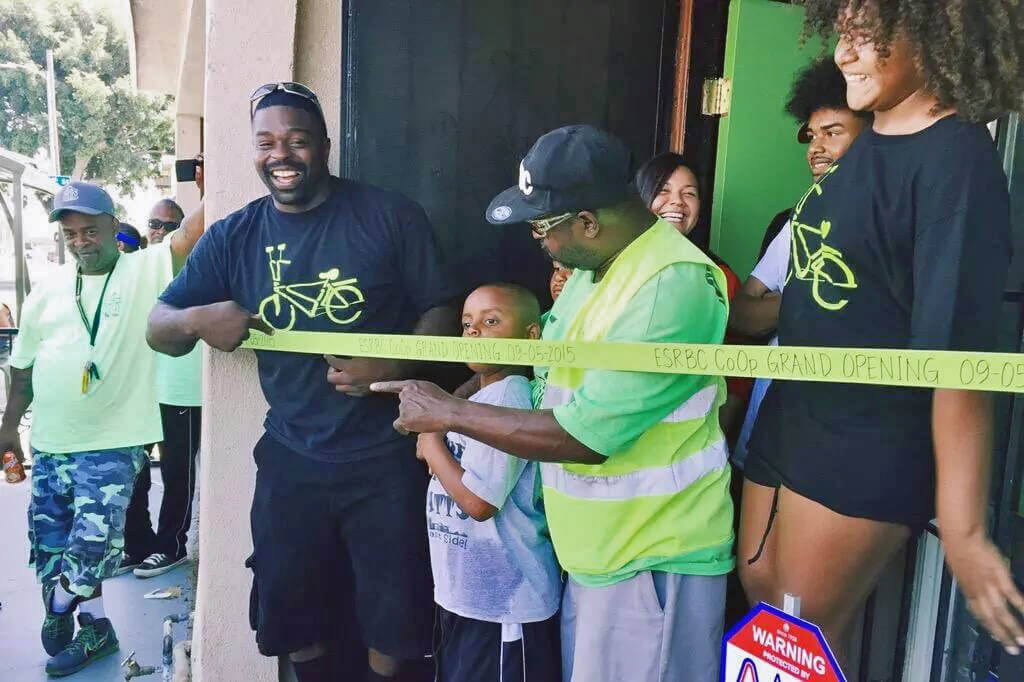
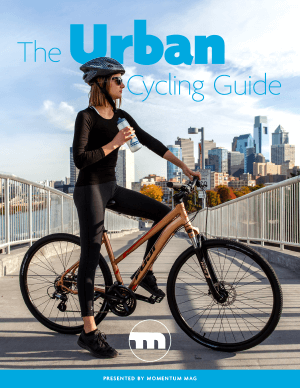
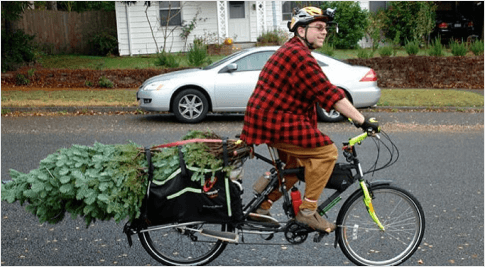
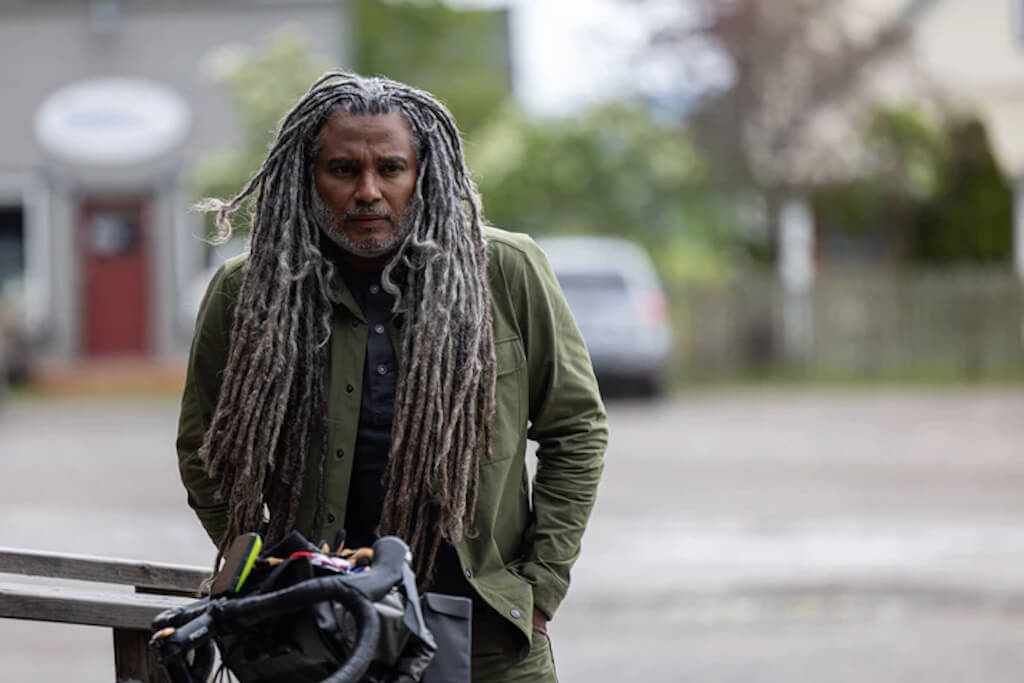
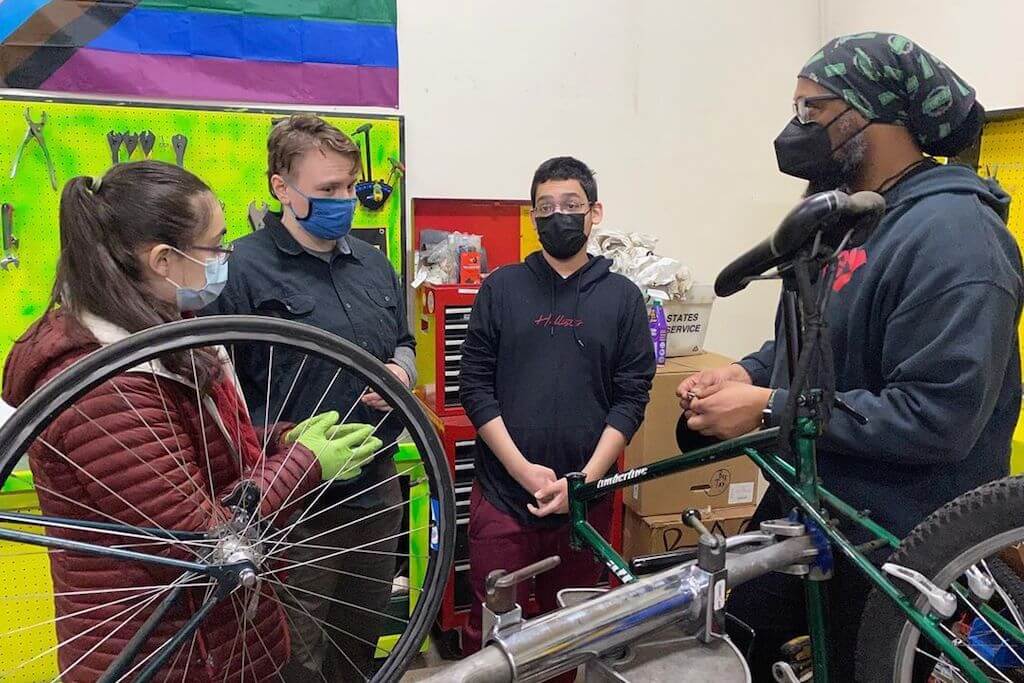
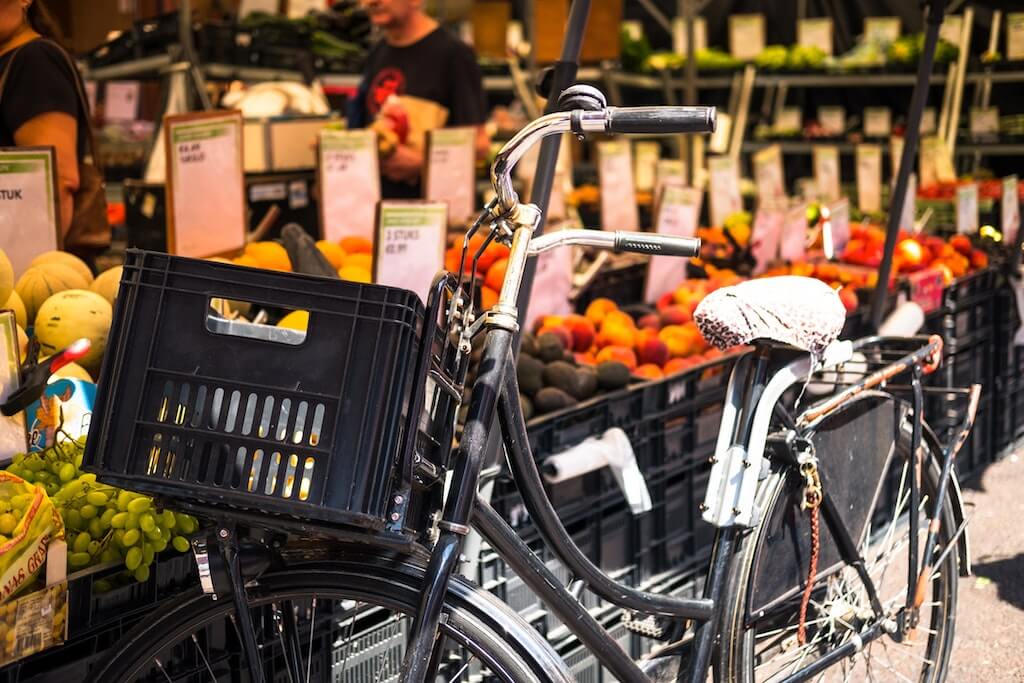

Leave a comment